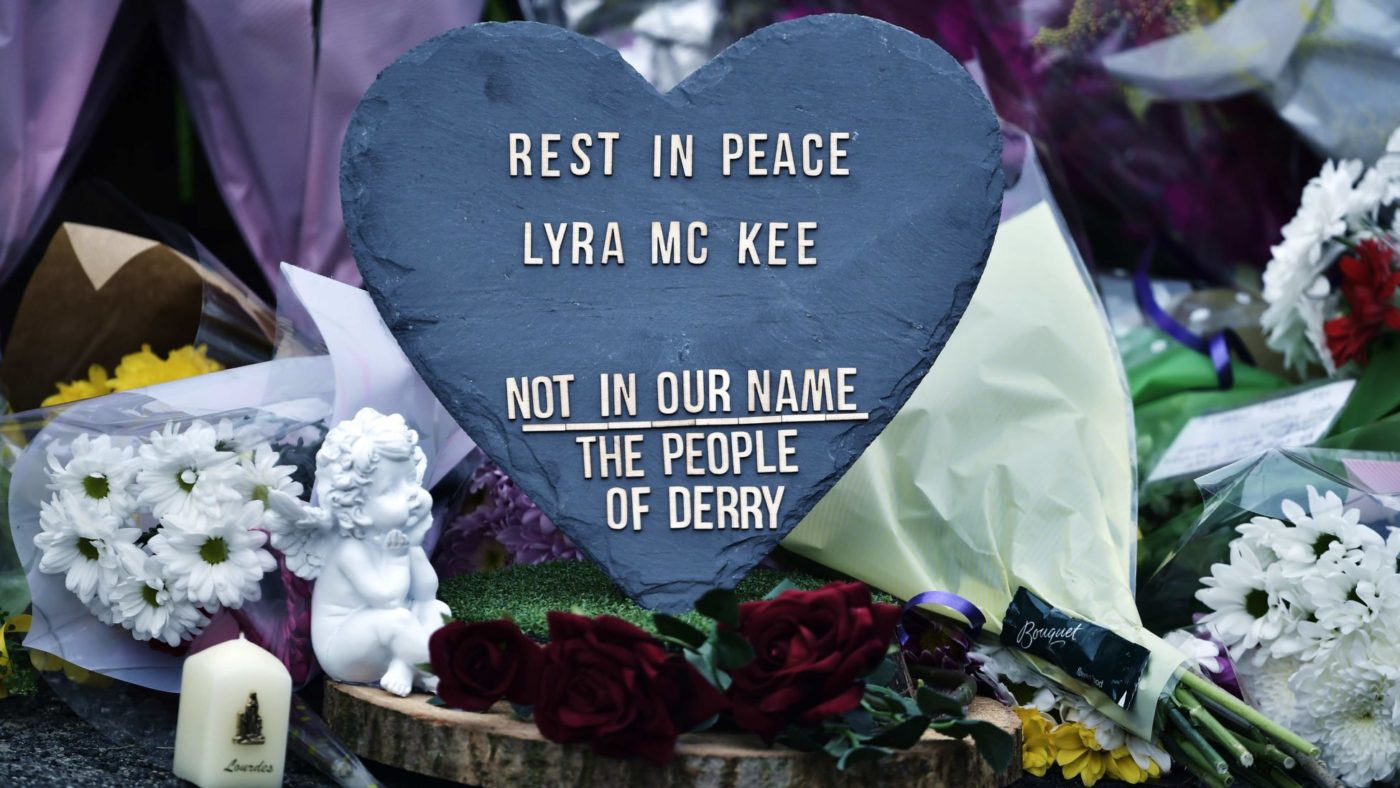In Northern Ireland, people are still numb with shock after a young journalist, Lyra McKee, was shot dead by republican paramilitaries in Londonderry last Thursday.
It is wrong to say that this incident was a throwback to the worst days of the Troubles. The province endured decades of violence of varying ferocity, but this was the first time a journalist was killed covering disorder on the streets.
At about 11pm, Ms McKee was standing close to a PSNI landrover with a group of reporters, watching riots on the Creggan estate. The police had previously raided houses in the city and violence is the time-honoured republican response to attempts to curtail their activities.
CCTV and mobile phone footage captured the journalist’s last moments, filmed against a backdrop of burning vehicles. A masked gunman appeared to lean out from behind a building before firing a shot toward police lines.
At 29 years old, Lyra McKee had already made a significant impact on journalism. Some of her pieces were deeply personal, drawing on her experiences as a gay woman in Northern Ireland and she attracted attention for crowdfunding investigative journalism into the murder of the Ulster Unionist politician, Reverend Robert Bradford.
Among the many personal tributes from the journalist’s friends and acquaintances, politicians condemned her killers in a rare moment of cross-community solidarity. The six largest parties released a joint statement, describing the incident as an “attack on the peace and democratic processes,” and a, “pointless and futile act to destroy the progress made over the last twenty years”.
Sinn Féin’s deputy leader Michelle O’Neill called the shooting an “attack on all of us”. She said the perpetrators, “have no place in society”. At a vigil on the Creggan estate, a traditional heartland of militant republicanism and the home of ‘Free Derry Corner’, O’Neill was joined by DUP leader, Arlene Foster.
“I want to say: your pain is my pain”, Mrs Foster told the crowd, “it doesn’t matter whether you are Catholic or Protestant. Whether you identify as Irish or British. I come with my party colleagues to simply stand with you today on this holy day of Good Friday, to remember that there is an Easter Sunday and there is hope.”
It was a powerful moment and the people of Creggan responded with warm applause for the unionist leader’s words.
Theresa May and Jeremy Corbyn, both used the word “senseless” to describe the killing. That was a fitting way to summarise the nihilistic urge from the wilder fringes of Irish republicanism to keep murdering and maiming.
Another fairly common, but less well chosen response explained Ms McKee’s death by referring to the supposed context in which it occurred, citing acrimony over Brexit and the Irish border or the lengthy suspension of devolved government at Stormont. Tory MP George Freeman tweeted a particularly crass comment that, “we cannot allow a Brexit which undermines the peace in Northern Ireland”.
The ‘New IRA’, which is thought to be responsible for the shooting, is just the latest incarnation of an organisation devoted to killing its way to an all-Ireland republic. Its leaders previously released a statement saying “all this talk of Brexit, hard borders, soft borders has no bearing on our actions”.
For hardcore republicans, the existence of any frontier in Ireland warrants violence. Less than forty eight hours after its ‘military’ wing gunned down McKee, political apologists for this version of the IRA, Saoradh, were marching in military fatigues in central Dublin and invoking the blood sacrifice of the Easter Rising. The ancient hatreds that sustain republican violence have little to do with current political tensions.
For the moment, in Northern Ireland, the reaction to Lyra McKee’s death is still uncomplicated horror and revulsion. There has, so far, been less inclination to give this horrible incident the cloak of context.
Police officers say they are receiving unprecedented cooperation as they investigate the killing, marking what they have called a “sea change” in attitudes to dissident republicans. The message “not in our name, RIP Lyra” has been added to the infamous republican mural painted with the words “you are now entering Free Derry”.
Yet, there was always a backlash in the aftermath of the IRA’s most infamous atrocities.
Londonderry’s local council includes a number of ‘independent republicans’ with close links to so-called dissident groups, showing that they are not without support. Sinn Féin is by far the biggest nationalist party in Northern Ireland, despite being part of a movement that killed almost 2,000 people, 650 of whom were civilians. The Republic of Ireland’s deputy prime minister, Simon Coveney, campaigned for the release of Tony Taylor, a dissident republican from Londonderry, who was re-arrested after being allowed out of prison on licence under the terms of the Good Friday Agreement.
Perhaps the tragic death of Lyra McKee will mark a genuine change in attitudes to paramilitary violence in Irish nationalist communities. Maybe now we’ll see constructive relationships with the police, an end to glorifying terrorists who committed appalling crimes and a clear message to young people that killing in the name of an all-Ireland republic is wrong.
As yet, it is much too soon to say.
CapX depends on the generosity of its readers. If you value what we do, please consider making a donation.


